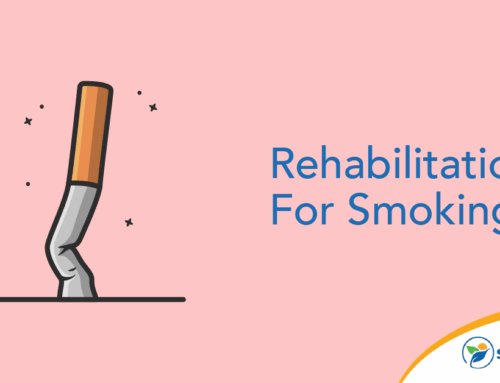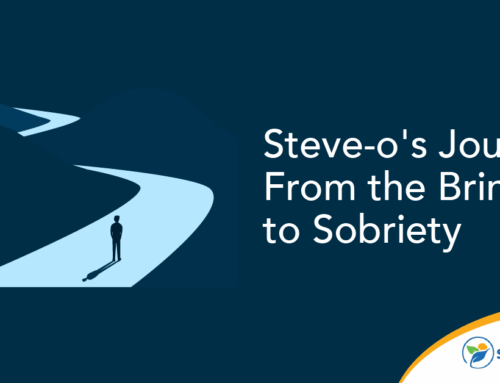No matter how well things are going, it’s helpful to take a step back and assess your life. A healthy living assessment focuses on five key topics: sleep, nutrition, exercise, fun and support. If you’re falling short in any of these areas, doing regular assessments gives you an opportunity to improve. Making even a few small changes can enhance your mental and physical health, leaving you feeling stronger than ever.
Five Components of a Healthy Living Assessment
1. High-Quality Sleep
When you don’t get enough sleep, you feel tired the next day. You may have trouble focusing or performing certain activities. What you may not know is that sleep affects several body systems. For example, sleep gives your cardiovascular system a chance to relax. Your heart rate and blood pressure decrease, putting less stress on your heart and blood vessels. When you don’t get enough sleep, you may have an increased risk of stroke, coronary artery disease, obesity or high blood pressure.
Sleep quality also affects your metabolism and hormone levels. If you don’t get enough sleep, your body may become less sensitive to the effects of insulin. When your body doesn’t use insulin well, glucose stays in your bloodstream instead of entering your cells. A lack of sleep also affects the production of ghrelin and leptin, two hormones involved in controlling hunger. Therefore, poor sleep may lead to weight gain.
If you’re not getting as many hours of sleep per night as you need, try the following:
- Put away your cell phone or tablet at least 1 hour before bed. The blue light from these devices can throw off your natural sleep-wake cycle.
- Make your bedroom as comfortable as possible. If you have the budget, update your saggy mattress with something more supportive, or replace your worn-out sheets with new ones.
- Keep your bedroom at a comfortable temperature. The Sleep Foundation recommends setting the thermostat between 60 and 68 degrees Fahrenheit.
- Exercise regularly. Aerobic exercise increases the amount of deep sleep you get, improving your overall sleep quality.
- Get a professional sleep evaluation. You may have sleep apnea, narcolepsy or another sleep disorder requiring treatment.
2. Nutrition
What you eat has a major impact on your mood and energy level. For example, if you don’t have enough vitamins and minerals, you may experience fatigue, irritability and mood swings. At the opposite end of the spectrum, some foods reduce inflammation, enhancing your mood. If you’re lacking important nutrients or missing out on a balanced diet, a few simple adjustments may help improve your physical and mental health.
Before you make any changes, talk to your primary care provider, especially if you have any chronic health conditions. Your PCP can provide recommendations tailored to your age, current weight and overall health status. You may also benefit from having a registered dietitian perform a nutrition analysis.
If you’re not getting enough nutrients, add more fruits and vegetables to your diet. Apples, oranges, sweet potatoes, cucumbers and tomatoes all contain vitamins and minerals. Fruits and vegetables also contain fiber, which helps you feel full after meals and snacks. If possible, increase your intake of omega-3 fatty acids. Your brain needs these fatty acids to function properly.
3. Exercise
When you exercise, your brain releases endorphins, which are natural painkillers. Endorphins also boost mood, making exercise essential for maintaining your mental health. According to researchers from Harvard Medical School, walking for 1 hour per day reduces the risk of major depression. If you’re able to run, you can get the same benefit with just 15 minutes per day of running.
If you don’t have time to exercise for an hour every day, try to get in some activity whenever you can. Walk around the building during your lunch break, take the stairs instead of the elevator or dance around the living room while you wait for dinner to finish cooking.
If you can’t run or walk regularly due to physical limitations, ask your health care provider if it’s safe to try modified activities. For example, swimming is beneficial for people with arthritis because it doesn’t put as much pressure on the joints as walking and jogging do. If necessary, get an exercise assessment from a physician or physical therapist to determine which activities are safe for you to perform.
4. Fun
Whether you’re taking a cooking class or playing board games with friends, participating in fun activities is a great way to relieve stress. As you work through your healthy living assessment, do a leisure activities review. If you can’t remember the last time you had a chance to relax, make an effort to spend more time on leisure activities.
Here are a few ideas to get you started:
- Sign up for a class at your local community college. Many schools have personal enrichment classes, so you don’t necessarily have to sign up for an accounting or marketing course. You can learn how to cook authentic Chinese cuisine, crochet a blanket or take stunning wildlife photographs.
- Invite your friends over for an evening of fun. You don’t have to spend a ton of money to enjoy yourself. If you need a little entertainment, invite some friends over to do jigsaw puzzles, play trivia, watch a movie or have a video game competition.
- Attend local events. Unless you live in a remote area, your town probably has concerts, festivals, sports competitions and other events you can attend in your free time. If you need a break from the stress of daily life, attend one of these events.
5. Emotional Support
Emotional support is another term for the care and compassion you receive from others. If you’re doing a healthy living assessment, it’s critical to think about how much support you have from friends and family members. A supportive person asks questions about your life, listens carefully when you’re expressing your feelings and encourages you to pursue your goals.
If you need unbiased input, schedule an appointment for a social support evaluation. A licensed therapist can help you identify the most supportive people in your life and improve your relationships with them.
Everyone has ups and downs, but if you’ve been feeling depressed, withdrawn or anxious, it’s important to take your symptoms seriously. Improve your well-being by doing a healthy living assessment and making small changes. Your future self will thank you.







